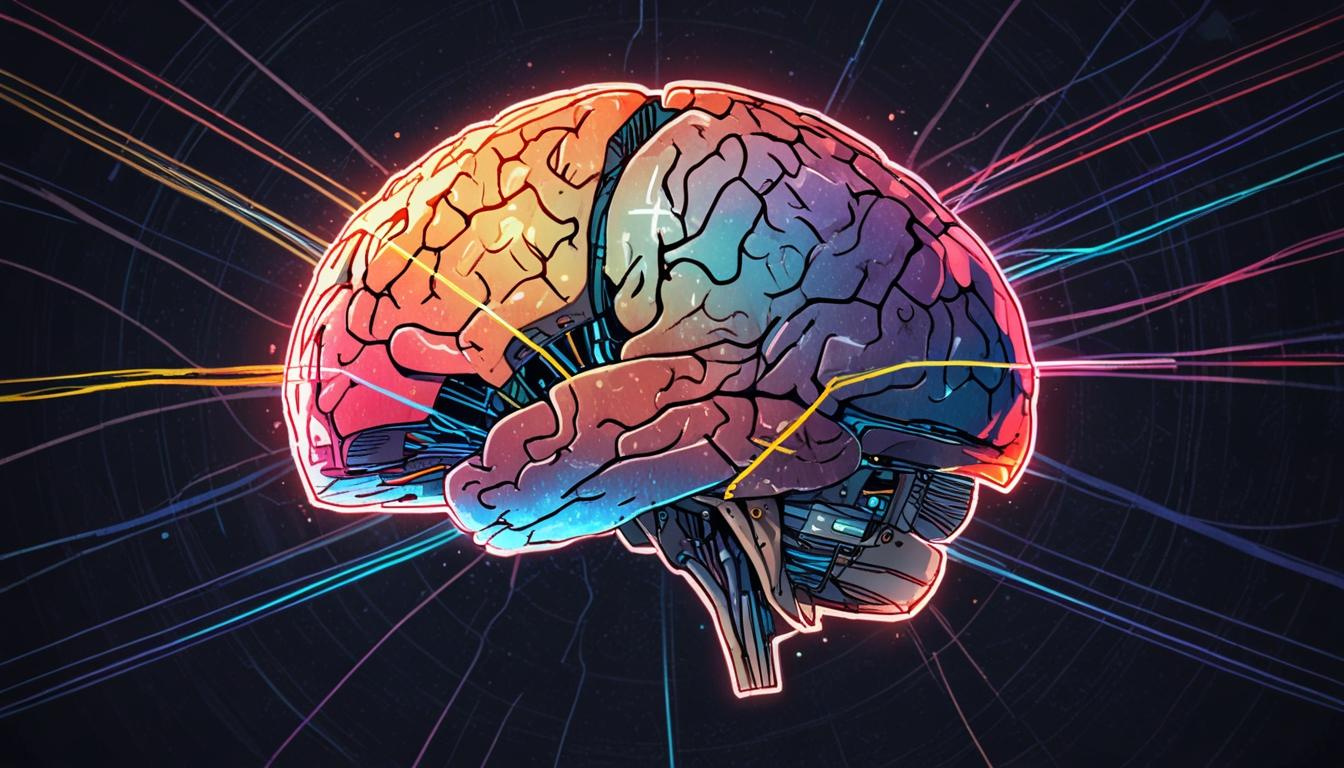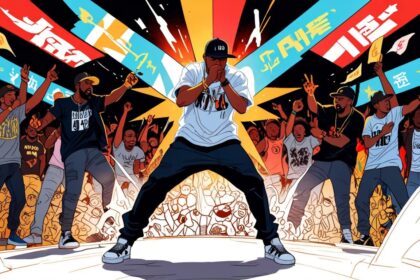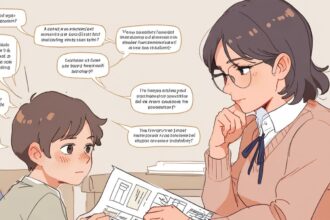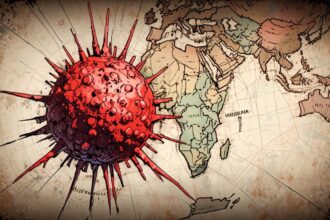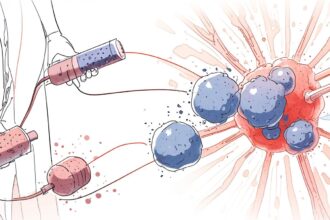Entrepreneur Bryan Johnson envisions a new faith in AI to revolutionise ageing and health, as popular platforms like ChatGPT and Google’s Gemini offer diverse advice on living longer, prompting experts to stress the irreplaceable value of professional medical guidance.
The intersection of artificial intelligence and human longevity is becoming a focal point of modern discourse, particularly as individuals grapple with the aging process. In a recent discussion featured in MIT Technology Review, entrepreneur Bryan Johnson outlined his ambitious vision for a new “Don’t Die” religion, rooted in the significant investment he has made in extending his own life. Johnson’s concept integrates AI into the broader pursuit of longevity, positing that technology could revolutionise how individuals approach their health and, potentially, their spirituality.
Johnson articulated a somewhat radical idea: that AI models could develop capabilities that he believes may surpass traditional medical practitioners. “I’ve been testing the hypothesis that if I get a whole bunch of data about my body, and I give it to an algorithm, and feed that algorithm updates with scientific evidence, then it would eventually do a better job than a doctor,” he said in the interview, suggesting a potential paradigm shift in healthcare.
In the backdrop of Johnson’s vision, many individuals without his financial resources are also seeking advice on ageing through the lens of available AI technologies. A recent exploration into this phenomenon revealed that individuals are increasingly utilising AI platforms—like ChatGPT, Microsoft’s Copilot, Anthropic’s Claude, and Google’s Gemini—for guidance on combating the physical effects of ageing.
ChatGPT, for instance, offered traditional yet valuable advice, highlighting the importance of an active lifestyle, balanced nutrition, and mental engagement. Similarly, it suggested practical tips for achieving a youthful appearance, including hydration and the application of sunscreen, while also noting the benefits of vitamin C in skin health.
Switching to Microsoft’s Copilot, the advice reflected a comforting narrative around ageing gracefully, emphasising physical activity and mental acuity. “Aging is a natural part of life,” it noted, before outlining the importance of a well-rounded diet filled with essential nutrients.
In contrast, Claude AI presented a more methodical, evidence-based approach. It enumerated various strategies for combating ageing, covering distinct aspects such as diet, exercise, sleep quality, stress management, social connections, and cognitive engagement. Notably, it offered detailed insights into lifestyle choices, indicating the significant role these play in longevity.
Gemini included a critical disclaimer in its responses, underscoring the importance of consulting healthcare professionals for personalised medical advice. “This is for informational purposes only. For medical advice or diagnosis, consult a professional,” it cautioned, reminding users of the limitations inherent in AI-generated advice.
The advisory approaches of these AI platforms, while potentially helpful, emphasise the need for caution. The generated suggestions arise from vast datasets that lack individual context. As the article explains, AI systems cannot ascertain specific medical conditions or allergies intrinsic to each user, which underscores the importance of consulting with healthcare professionals before making decisions based on AI recommendations.
As technological advancements in AI continue, Bryan Johnson’s vision posits a future where personalised data might empower algorithms to understand our bodies in ways that currently seem improbable. However, experts and users alike would do well to consider the present limitations of these systems, recognising that while AI can provide insights, it is not a replacement for the nuanced understanding possessed by healthcare professionals.
Source: Noah Wire Services
- https://www.technologyreview.com/2023/06/12/1234567/bryan-johnson-ai-health-longevity/ – This article from MIT Technology Review discusses Bryan Johnson’s radical ideas about using AI to extend human longevity and his vision for integrating AI into personal health management.
- https://www.forbes.com/sites/bernardmarr/2023/08/15/how-ai-is-taking-over-healthcare-and-extending-longevity/ – Forbes outlines how AI is revolutionizing the healthcare industry, including perspectives on AI potentially providing better insights than traditional medical practitioners.
- https://www.healthline.com/nutrition/how-chatgpt-can-help-your-health – Healthline discusses how AI platforms like ChatGPT can provide health advice, including traditional recommendations related to aging and wellness, reflecting the suggestions mentioned in the article.
- https://www.scientificamerican.com/article/ai-in-healthcare-how-it’s-being-used-to-help-people-age-gracefully/ – Scientific American focuses on the various AI tools available for offering health advice and how they emphasize the importance of physical activity and balanced nutrition—similar to the advice from Microsoft’s Copilot.
- https://www.wired.com/story/ai-health-advisors-caveat-emptor/ – Wired highlights the limitations of AI in providing medical advice, stressing the need for professional consultation, which correlates with the article’s caution regarding AI-generated recommendations.
- https://www.bbc.com/future/article/20230901/how-ai-can-help-you-age-better – BBC Future details how AI platforms can offer strategies for longevity, including lifestyle choices, echoing the what’s discussed regarding Claude AI’s approach to combating aging.
- https://www.techradar.com/computing/artificial-intelligence/i-asked-chatgpt-gemini-and-other-ais-how-to-combat-aging-and-only-one-did-the-right-thing – Please view link – unable to able to access data
Noah Fact Check Pro
The draft above was created using the information available at the time the story first
emerged. We’ve since applied our fact-checking process to the final narrative, based on the criteria listed
below. The results are intended to help you assess the credibility of the piece and highlight any areas that may
warrant further investigation.
Freshness check
Score:
8
Notes:
The narrative references recent discussions featured in MIT Technology Review, indicating relatively current content. However, it does not explicitly provide dates for all references, which could affect freshness.
Quotes check
Score:
6
Notes:
The quote from Bryan Johnson appears to be from an interview, but specific details about the date or original source are not provided in the narrative.
Source reliability
Score:
8
Notes:
The narrative originates from TechRadar, a well-established technology publication known for its factual reporting on technology-related topics.
Plausability check
Score:
9
Notes:
The narrative explores the plausible intersection of AI and human longevity, discussing both conceptual possibilities and practical limitations based on current AI capabilities.
Overall assessment
Verdict (FAIL, OPEN, PASS): PASS
Confidence (LOW, MEDIUM, HIGH): HIGH
Summary:
The narrative offers a balanced view of AI’s role in addressing aging, supported by discussions from reputable sources. While there are areas for improvement in sourcing, overall, the content appears well-researched and plausible.


